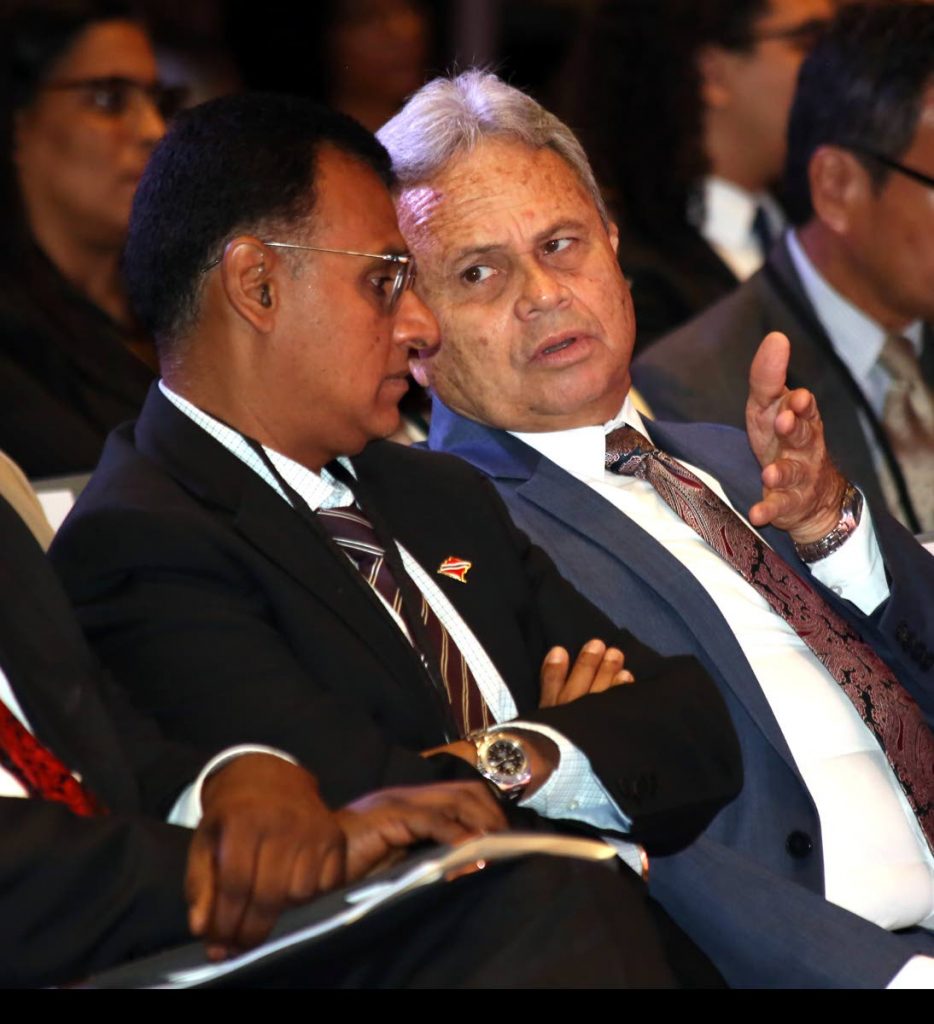Imbert: IMF would have ended free education, healthcare

FINANCE Minister Colm Imbert said if TT had gone to the International Monetary Fund (IMF) it would have meant the end of free education and free healthcare.
He was speaking at the CAF - Development Bank of Latin America seminar on Monday at the Hilton Trinidad, Port of Spain.
He said if TT had sought assistance from the lender of last resort, Government would have been forced to cut expenditure to the point that there would have been mass retrenchment in the public sector, the cost of electricity and water would have increased significantly, free education and free healthcare would have “disappeared,” the social safety net would have been damaged and the currency would have been devalued.
He recalled in the previous energy-price collapse of the 1980s the TT government chose to engage with the IMF and standby arrangements which totalled US $184 million.
“At the time they must have felt that they had no choice. However, the drastic decline in the price of oil, coupled with an international environment crippled by stagflation (slow economic growth and relatively high unemployment), took its toll on our small island state. The one-size-fits-all austerity plan proposed by the IMF at the time and implemented by the then government led to the collapse and the downsizing of numerous companies, with industries like automotive, construction, retail and manufacturing industries suffering tremendously.”
He said the economic contraction was “swift and severe” and saw TT’s GDP decline by 40 per cent in just four years, significant job losses, a high rate of defaults on loans and mortgages, and double-digit unemployment.
Imbert said in September 2015, when the present government assumed office, oil prices were again “dropping like a stone,” gas production was on the decline and gas prices were depressed, “sending our economy into turmoil.” He recalled several missions from the IMF did their own in-depth review of the economy and an IMF technical team came at the government’s request just after the 2015 election.
Imbert said many of the proposals had a common theme and included: implementing a property tax system; extending the tax base; increasing tax collection, “sin” taxes on alcohol and tobacco, personal income tax and corporation tax; eliminating fuel subsidies; eliminating or reducing other subsidies or transfers; introducing wage and hiring restraint mechanisms; reducing the size of the public sector; and reducing government expenditure to match income to achieve a budget surplus.
“Does any of this sound familiar? Indeed, 25 years after we got ourselves out of an IMF programme, we were advised to embrace the same old sterile provisions of 1990, focused on contraction without due consideration of the short- and long-term adverse effects on our citizens.”
He said returning to the IMF was not a road the government wished to travel.
“We had had enough of that.”
He said, however, returning to the IMF was not a road Government wished to travel.
“We had had enough of that.”
He said the lesson for other energy-dependent countries faced with similar challenges included “stay away form the IMF at all costs.”
Imbert said through Government’s efforts TT was on the threshold of sustainable growth for the future and the prospect of a balanced budget. He reported that moving forward Government will focus on include: expanding exports; increasing forex earnings; suppressing crime; reversing non-progressive attitudes, values and behaviours such as low productivity and poor work ethos; constitutional and institutional reform; addressing the impact of shale gas on the TT market; transforming the economic growth model into one that is environmentally friendly and addressing climate change through reducing greenhouses gasses.
He said it was a great pleasure to be a full member of CAF and he appreciated the approach of CAF to financing infrastructure and fiscal consolidation in TT.
“It has been a breath of fresh air when compared to other development banks.”

Comments
"Imbert: IMF would have ended free education, healthcare"